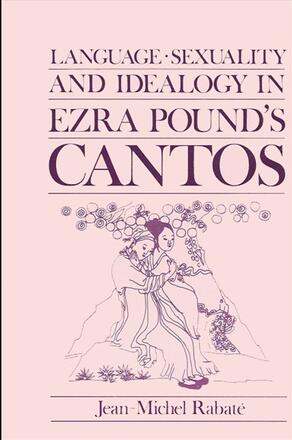
Language, Sexuality, and Ideology in Ezra Pound's Cantos
Alternative formats available from:
Description
Ezra Pound's Cantos remains among the most influential and difficult of twentieth century poetic writings. But now, for the first time, Rabaté's powerful and original study presents a theory of reading adequate to the challenge of Pound's writing. Using elements from Lacanian psycho-analysis and Heidegger's powerful meditation of poetry and language, this book constructs a theory of reading which both gives full force to the strategies of writing deployed in the Cantos and to the historical and political situations to which those strategies are a response.
This study provides a fresh reading of the familiar Pound canon: Homer, Dante, Ovid but also of the less well-known: Ruskin, Browning, Frobenius. Pound's practice of quotation is understood in the context of a new poetic discourse characterized by parapraxis, ellipsis, condensation and autonomous "voices" which refer the division of the speaking subject back to an "omniform" intellect capable of taking on any new personality at will.
Crucial to an understanding of Pound's situation is the relationship between Chinese and Greek culture, an analysis of which allows Rabaté to elaborate the tragic dimension in Pound's life and works. This book also parallels and contrasts Pound with his major contemporaries such as Eliot and Joyce and with his immediate heirs, like William Carlos Williams, H. D., Zukofsky, and Olson.
Jean-Michel Rabaté is Professor of English at the University of Dijon.